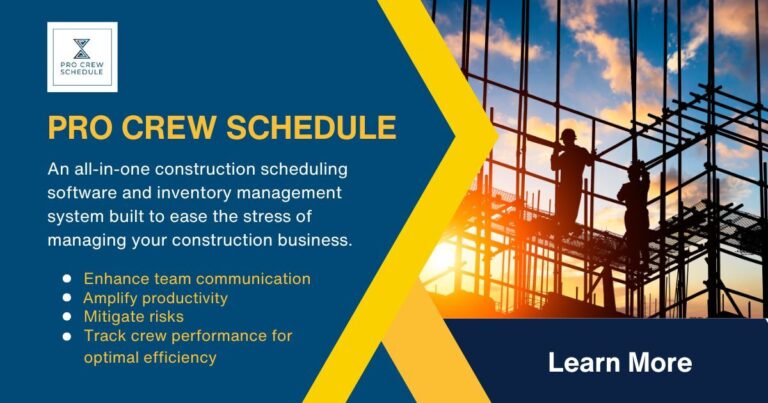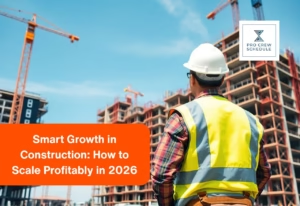Keeping complex and large-scale projects running smoothly can be challenging, especially for construction owners who handle multiple capital projects.
Enter the project developers.
A project developer, aka owner’s representative, acts on behalf of the project owner to reduce risk and ensure the management runs smoothly and is finished as planned.
A project dev helps owners manage stakeholders, navigate contracts, and handle on-site problems. Project developers also play a big role in planning and ensuring the project aligns with the entire asset lifecycle management objectives.
Let’s take a closer look at their function below.
What is a Project Developer?
A project developer is a credible professional who manages construction projects on an owner’s behalf. They represent the owner to ensure that the project stays on track with the budget and timeline and meets the owner’s goals.
The Key Responsibilities and Tasks of a Project Developer
The project dev has a hand in various phases of the construction project, so they have multiple responsibilities. These include:
- Helping define project goals, budgets, and timelines, ensuring they’re consistent with the owner’s goals, and contributing to effective project planning.
- Reviewing and negotiating major contracts with contractors, suppliers, and other stakeholders.
- Manage expenses and monitor cost control so everything is within the approved budget.
- Acting as the main contact person between the owner, contractors, architects, and other project stakeholders.
- Monitor the progress of the project and ensure that the output meets set quality standards and specifications. This can involve long-term maintenance and asset management considerations.
- Identify potential delays, risks, quality issues, and cost overruns, then take necessary steps to mitigate them.
- Keeping the project on track by managing timelines and addressing scheduling conflicts. Reviewing construction crew scheduling set by the project manager and adjusting accordingly.
- Conduct regular inspections to ensure the project meets the owner’s vision and industry standards.
- Ensuring all work complies with building codes, safety regulations, and contractual obligations.
When to Engage a Project Developer
In general, it is advisable to start early. By doing this, you may ensure the project’s success right away.
To fully grasp the project’s scope, proactively manage risks, and supervise crucial choices, owners of complicated or high-stakes projects, for instance, would benefit from having an experienced professional involved in the planning phases.
Another example would be if the owner had no prior expertise with a certain kind of construction project. In this case, a project developer offers the knowledge required to confidently handle negotiations, design, and construction.
Benefits of Hiring a Project Developer
Having a project developer benefits all parties involved, including architects and contractors, and the owners. Think about the following:
Knowledge and experience
A project developer helps owners and project teams make well-informed decisions at every project level by bringing extensive industry knowledge to the table. The greatest owner’s representatives have seen everything, from budgetary obstacles to design difficulties, so they are well-versed in handling challenging circumstances to produce favorable results.
Project management and risk reduction
A project developer oversees the project continuously, so you have someone keeping an eye on things and taking care of problems before they ruin budgets or schedules. By doing this, interruptions are reduced, and important project milestones are met.
Improved coordination and communication
Stakeholders can effectively coordinate communication amongst all teams by using a project developer as a point of contact. They guarantee that everyone remains in agreement.
Effective time management and scheduling
Projects are more likely to remain on course. When a project developer is in charge of scheduling and timeframes; their emphasis on effectiveness keeps your project on track.
Project Manager vs. Construction Manager vs. Project Developer
Among the important roles in a construction project are the project manager, construction manager, and project developer. Furthermore, each of these roles has a unique function, even though they might occasionally overlap.
Project Developer vs. Project Manager
The project developer keeps the big picture in mind. Consider overseeing contracts, finances, and overarching objectives. On the other hand, a construction project manager works for a general contracting company and is in charge of the project’s daily operations. They organize deliverables, resources, and construction crew scheduling.
Construction Manager vs. Project Developer
A construction manager, as opposed to the owner’s representative, concentrates on day-to-day operations, team coordination, and project technicalities such as material schedule in construction. Managing subcontractors and ensuring the construction goes on safely and on schedule are some of their main responsibilities. Project developers, however, are usually in charge of the project and play a more significant role.
How do they collaborate with each other? While the construction manager manages the day-to-day activities on-site, the project developers offer strategic direction on the owner’s behalf.
Project Developers Qualifications
Proficiency in overseeing similar projects
They must possess a demonstrated history of effectively managing construction projects. Select a project developer who has worked on projects with comparable scale, complexity, and scope. For instance, if you own a sizable and intricate infrastructure project, you should probably work with an owner’s representative who has a lot of expertise with major civil projects and is knowledgeable about their intricacies, such as permission procedures.
Experience overseeing construction contracts
These experts must have a thorough understanding of the intricacies of construction agreements because they will be working on behalf of the owner. To safeguard the owner’s interests, they must, therefore, be adept at negotiating, examining, and enforcing building contracts.
Excellent communication skills
The individual or organization you choose should be skilled at encouraging transparent and productive cooperation between all project participants. They must be able to support you and keep everyone on the same page because they will speak on behalf of the owner in these exchanges.
Strong scheduling and budget management skills
One of the project developer’s main duties is ensuring the project is completed on schedule and within budget. Therefore, pick a supplier with experience in setting, tracking, and upholding project budgets and schedules.
Risk management knowledge and experience
Choose a partner with experience and expertise in risk management who can recognize and reduce risks. Finding someone who can proactively handle problems before they worsen is crucial to ensuring the project goes off without a hitch.
Technical know-how and industry knowledge
They must also be well-versed in building codes, construction procedures, and industry best practices. In this manner, they can guarantee that the project adheres to legal requirements and uses effective, tried-and-true techniques.
Problem-solving abilitieS
One of the most important qualities to look for in a project developer is the ability to handle unforeseen obstacles. You want someone who can quickly reduce interruptions and save the project money and time.
Leadership and decision-making skills
Select a project developer who manages teams and makes important choices under duress. Doing this guarantees they can successfully lead the project, even in high-stakes or urgent circumstances.
Knowledge of project delivery methods
Their technical proficiency and industry knowledge are essential, as is a thorough comprehension of building codes, construction procedures, and industry best practices. This allows them to ensure the project adheres to rules and uses effective, tried-and-true techniques.
Problem-solving abilities
One of the most important qualities to look for in an owner’s representative is the capacity to think quickly to avoid disruptions and save the project money and time.
Choose an owner’s representative with leadership and decision-making skills to guide teams and make important decisions under duress. By doing this, they guarantee that they can effectively lead the project even in high-stakes or time-sensitive scenarios.
Questions to ask potential project developers
Already have a shortlist of project developers? Consider asking the following questions to ensure you find the right fit and make sure they’ll truly represent your best interests:
- What is your experience managing projects with the same scope and complexity? Could you provide examples?
- How do you ensure there are no conflicts of interest when collaborating with contractors, vendors, or other stakeholders?
- Can you give examples of how you’ve successfully managed project budgets and controlled costs?
- How do you approach coordination and communication with owners and project stakeholders?
- What steps do you take to ensure all decisions are made with the owner’s goals and best interests in mind?
- What construction crew management software do you use to monitor budgets, schedules, and construction progress?
- What is your process for identifying and mitigating risks?
- Fees related to employing a project developer
Although some may charge a flat fee or an hourly rate, project developers usually base their fees on a percentage of the project’s cost.
Although this might vary based on the size and complexity of the project, the amount for those who use the percentage model is often between 3 and 5% of the entire project value.
Key Takeaway
The success of your project is an investment when you hire a project developer. They guarantee that your construction objectives are fulfilled by providing knowledge, supervision, and owner representation. The selected project developer can make all the difference, whether you’re working on a complicated build or just want peace of mind. Your project will appreciate you taking the time to make an informed decision.
To enhance the efficiency of your project management, consider integrating Pro Crew Schedule. This comprehensive construction crew management software helps project developers stay on top of their tasks and responsibilities. With this tool, you can effortlessly track progress and monitor accomplishments in real-time, no matter where you are.







